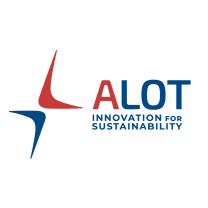SaferDeli

Project Summary
In modern societies, road traffic accidents remain a major societal issue. More than half of the road traffic deaths and injuries involve vulnerable road users, such as pedestrians, cyclists and motorcyclists. Although the EU has set ambitious targets and has indeed made progress in improving road safety and reducing traffic fatalities, there are still several important problems, namely those related to human factors and behaviour, which are particularly complex and challenging to evaluate.
Given the good climate conditions in the Mediterranean and the flexibility of movement, the majority of urban last mile deliveries are made by motorbikes, while other types of vehicles, such as cargo bikes, e-bikes, e-scooters, are being introduced in the sector targeting sustainability and enhancing micro-mobility.
Last-mile-delivery professionals are vulnerable road users who are very often involved in traffic accidents with, unfortunately, fatal consequences in many cases. Indeed, they are exposed to danger both due to their continuous presence on the streets, but also, due to their own driving behaviour which is not always aligned to road safety regulations and maybe progressively deteriorates over time; due to fatigue or other relevant risk factors. The SaferDeli project aims to alter this condition by improving their driving behaviours through tailor-made training.
Being aware of the challenges of road safety education of the specific sector, SaferDeli partnership focuses on jointly developing the multidisciplinary material and platform format to properly train last-mile-delivery professionals on specific topics that (i) are relevant to their everyday tasks, (ii) concern them in real-life, and (iii) attract their interest. Partners follow a multidisciplinary approach to cover all interlinked aspects.



Main Objectives
The main objectives of SaferDeli project are:
Improve the road safety skills of last-mile-delivery two-wheelers professionals (motorcyclists, cyclists, e-scooter riders) by developing and implementing an advanced and holistic vocational training approach, customized to their work-based needs; in order to be protected from being involved in accidents.
Exploit the effective mix of digital and in-person training methods on VET, to upskill and protect last-mile-delivery two-wheelers professionals from road accidents.





